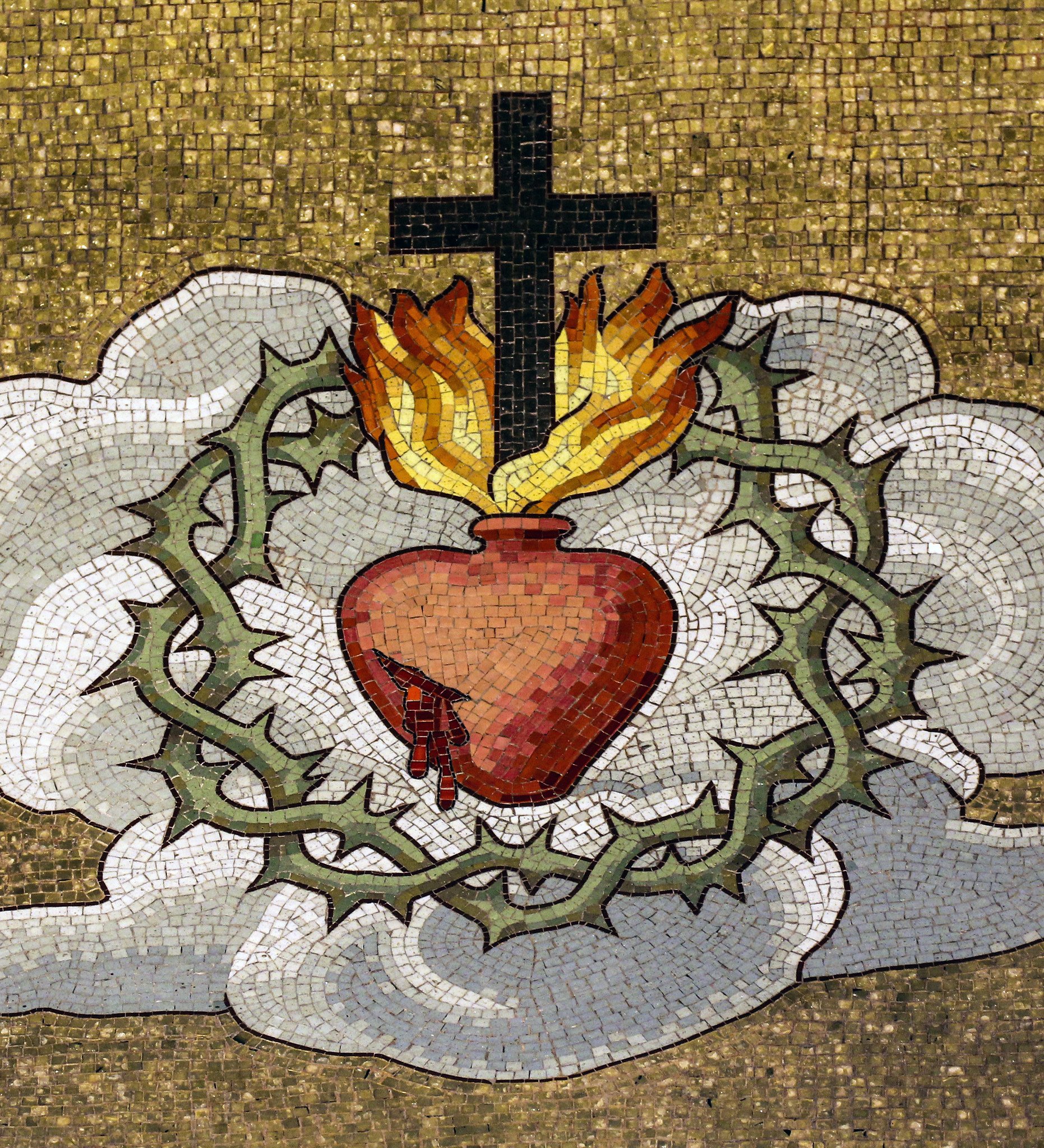Pope Francis Issues Fourth Encyclical
Dilexit nos
(“He loved us”)
See how Pope Francis was influenced by our patron St. Francis de Sales and our spirituality of the heart.
St. Francis de Sales in Dilexit nos
In Dilexit nos, Pope Francis celebrates the gentle Heart of Jesus. He draws upon the teaching and example of St. Francis de Sales and St. Margaret Mary Alcoque, VHM, the Disciple of the Sacred Heart. Below is an excerpt from Dilexit nos in which Pope Francis cites the teachings of St. Francis de Sales:
St. Francis de Sales
114. In modern times, mention should be made of the important contribution of Saint Francis de Sales. Francis frequently contemplated Christ’s open heart, which invites us to dwell therein, in a personal relationship of love that sheds light on the mysteries of his life. In his writings, the saintly Doctor of the Church opposes a rigorous morality and a legalistic piety by presenting the heart of Jesus as a summons to complete trust in the mysterious working of his grace. We see this expressed in his letter to Saint Jane Francis de Chantal: “I am certain that we will remain no longer in ourselves… but dwell forever in the Lord’s wounded side, for apart from him not only can we do nothing, but even if we were able, we would lack the desire to do anything”. [103]
115. For Francis de Sales, true devotion had nothing to do with superstition or perfunctory piety, since it entails a personal relationship in which each of us feels uniquely and individually known and loved by Christ. “This most adorable and lovable heart of our Master, burning with the love which he professes to us, [is] a heart on which all our names are written… Surely it is a source of profound consolation to know that we are loved so deeply by our Lord, who constantly carries us in his heart”. [104] With the image of our names written on the heart of Christ, Saint Francis sought to express the extent to which Christ’s love for each of us is not something abstract and generic, but utterly personal, enabling each believer to feel known and respected for who he or she is. “How lovely is this heaven, in which the Lord is its sun and his breast a fountain of love from which the blessed drink to their heart’s content! Each of us can look therein and see our name carved in letters of love, which true love alone can read and true love has written. Dear God! And what too, beloved daughter, of our loved ones? Surely they will be there too; for even if our hearts have no love, they nonetheless possess a desire for love and the beginnings of love”. [105]
116. Francis saw this experience of Christ’s love as essential to the spiritual life, indeed one of the great truths of faith: “Yes, my beloved daughter, he thinks of you and not only, but even the smallest hair of your head: this is an article of faith and in no way must it be doubted”. [106] It follows that the believer becomes capable of complete abandonment in the heart of Christ, in which he or she finds repose, comfort and strength: “Oh God! What happiness to be thus embraced and to recline in the bosom of the Saviour. Remain thus, beloved daughter, and like another little one, Saint John, while others are tasting different kinds of food at the table of the Lord, lay your head, your soul and your spirit, in a gesture of utter trust, on the loving bosom of this dear Lord”. [107] “I hope that you are resting in the cleft of the turtledove and in the pierced side of our beloved Saviour… How good is this Lord, my beloved daughter! How loving is his Heart! Let us remain here, in this holy abode”. [108]
117. At the same time, faithful to his teaching on the sanctification of ordinary life, Francis proposes that this experience take place in the midst of the activities, tasks and obligations of our daily existence. “You asked me how souls that are attracted in prayer to this holy simplicity, to this perfect abandonment in God, should conduct themselves in all their actions? I would reply that, not only in prayer, but also in the conduct of everyday life they should advance always in the spirit of simplicity, abandoning and completely surrendering their soul, their actions and their accomplishments to God’s will. And to do so with a love marked by perfect and absolute trust, abandoning themselves to grace and to the care of the eternal love that divine Providence feels for them”. [109]
118. For this reason, when looking for a symbol to convey his vision of spiritual life, Francis de Sales concluded: “I have thought, dear Mother, if you agree, that we should take as our emblem a single heart pierced by two arrows, the whole enclosed in a crown of thorns”. [110]


